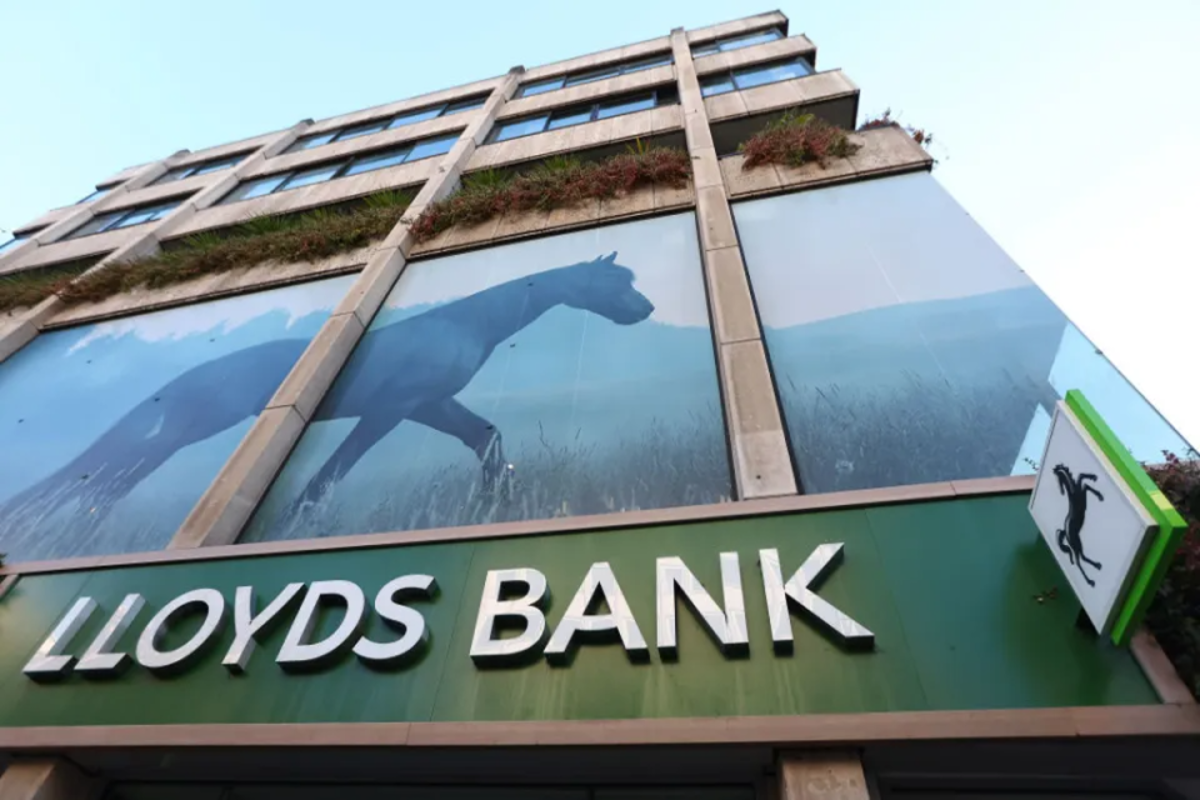| Updated:
Lloyds Banking Group has beaten profit estimates as the lender set aside less than expected for souring loans and saw improved consumer confidence.
The FTSE 100 firm – which owns Lloyds Bank, Halifax and Bank of Scotland – reported a pretax profit of £1.82bn between July and September, compared to £1.86bn a year earlier.
A company-compiled analyst consensus had expected a third-quarter profit of £1.62bn.
Lloyds’ bolstered its profit by setting aside significantly less than anticipated for bad loans. It booked a £172m impairment charge, up from £44m in the previous quarter but well below the £419m reported a year ago.
Analysts had expected Lloyds to make a £271m impairment.
With more than 27m customers, Lloyds is considered a bellwether for the UK economy. “We have continued to see increased confidence in customer activity,” chief financial officer William Chalmers told reporters.
He said the impairment was “relatively low” and helped by a debt sale within the quarter. “Our customers continue to prove resilient, without a doubt,” he added.
Among positive signs for the economy, the group noted a five per cent increase in customers’ spending on non-essential items over the first nine months of 2024. Average energy bill spending fell 20 per cent.
Lloyds reported a £1bn increase in deposits to £475.7bn in the third quarter.
The firm’s stock price rose 1.7 per cent in early trading on Wednesday. The stock is trading at its highest level since December 2019.
Lloyds’ shares have rallied 31 per cent so far this year amid an improving outlook for the UK economy.
Lloyds suffers a margin squeeze
Lloyds’ net interest income—what it generates from loans minus what it pays on deposits—was £3.23bn for the third quarter.
This was down from £3.44bn a year before and in line with analysts’ expectations of £3.18bn. Its net interest margin narrowed to 2.95 per cent from 3.08 per cent.
UK lenders’ margins have been squeezed this year as the Bank of England moved closer to lowering interest rates from a post-financial crisis high. In August, policymakers cut rates for the first time since March 2020.
Expectations of further cuts this year have sparked a mortgage price war in recent months, with lenders slashing their rates to attract borrowers.
Lloyds, which is Britain’s biggest mortgage provider, said its margins were weighed down by customers refinancing their home loans on to lower-rate deals.
Still, it reported £3.2bn of growth in mortgages during the quarter – driving a £4.6bn increase in Lloyds’ underlying loans and advances to customers.
Mortgage rates, including Halifax’s, have begun ticking up this month in response to uncertainty ahead of the new government’s first Budget on 30 October.
It reaffirmed its guidance for 2024, including a banking net interest margin of more than 2.9 per cent and a return on tangible equity, a key measure of profitability, of around 13 per cent.
“We are making good progress on our strategy and remain on track to deliver higher, more sustainable returns,” said chief executive Charlie Nunn.
Motor finance review
Elsewhere, Lloyds gave no new details on its exposure to the Financial Conduct Authority’s (FCA) review into whether consumers were unfairly charged through now-banned commission arrangements on car loans.
The lender noted a judicial review and Court of Appeal decisions involving its peers and said it “will assess the impact, if any, of these decisions”.
Investors have been paying close attention to Lloyds’ response to the probe since it was announced in January. Lloyds owns the UK’s biggest auto lender, Black Horse, and is considered the most exposed lender in absolute terms to possible compensation fees.
In February, Lloyds set aside £450m for potential costs tied to the review, but analysts estimate it could face a total bill as high as £3.5bn.
The FCA has warned lenders to hold cash in reserve for possible payouts after an avalanche of historic complaints. The regulator is due to set out its next steps on the review in May 2025.

